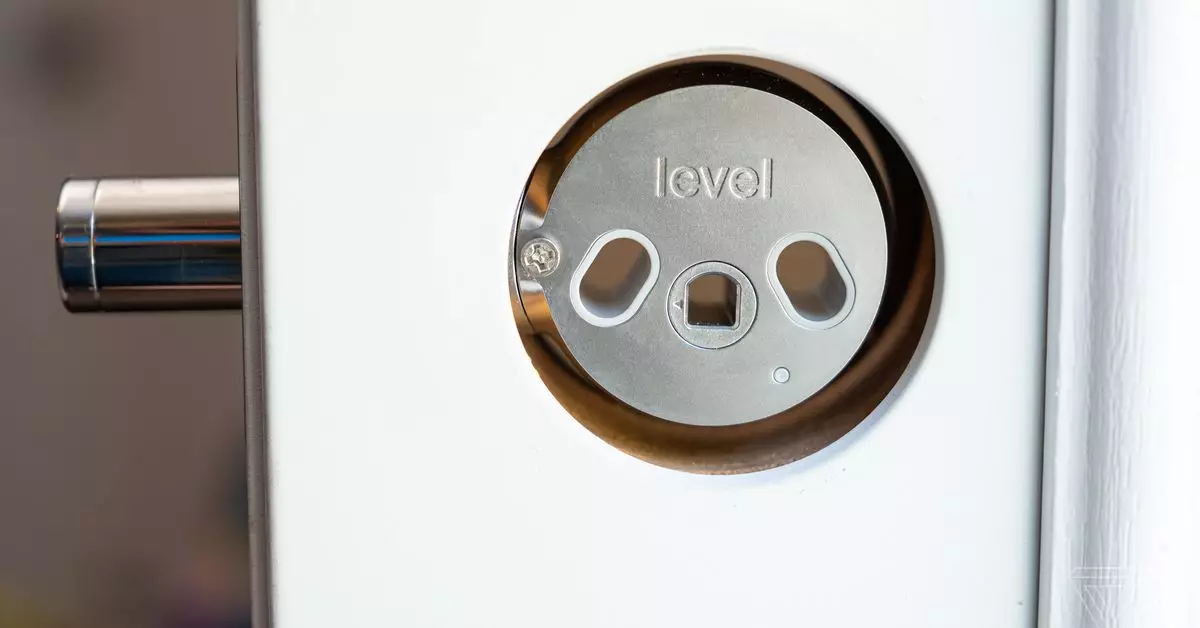The advent of smart home technology continues to change the way we interact with our living spaces, and smart locks are at the forefront of this transformation. Although still considered a niche segment, notable industry players are making significant strides to integrate these advanced locking mechanisms into mainstream use. The Swedish lock giant Assa Abloy is notably leading this charge, embedding itself deeply within the smart lock market by acquiring key innovators like Level Lock. This strategic move highlights the growing importance of digital access solutions as our security systems evolve.
Despite facing scrutiny from the U.S. government due to its aggressive acquisition strategy, Assa Abloy has not wavered in its ambition to become a dominant force in the digital locking market. The company’s purchase of Level Lock, known for its sleek design and innovative technology, embodies its commitment to pushing the boundaries of what’s possible in home security. Level’s smart locks stand out because they blend seamlessly into traditional aesthetics, allowing homeowners to embrace advanced security without sacrificing style. This move is significant; Assa Abloy now possesses a more comprehensive toolkit to innovate within its extensive array of existing brands.
Lucas Boselli, executive vice president of Assa Abloy, expressed confidence in this integration. The goal is clear: to simplify the transition from traditional mechanical locks to a new era of digital solutions. Their incorporation of Level’s technology promises a future where smart locks do not disturb the visual appeal of a home while ensuring security is only a smartphone tap away.
Assa Abloy’s robust strategies are shaped by past experiences within the industry. Its acquisition of August back in 2014 serves as a cautionary tale – although it successfully integrated August’s technologies into its broader product lines, the company ultimately had to divest from multiple brands, including Yale and August, to comply with regulatory concerns. This hindsight informs Assa Abloy’s current moves as they pursue Level Lock while remaining sensitive to market dynamics and regulatory landscapes.
Moreover, the concentration of power in the locking industry has raised eyebrows. According to the Department of Justice, Assa Abloy’s consolidation efforts could create a near-monopoly situation, with over half of the smart lock market under its control. Their ability to dominate this space puts them in a paradoxical position—while they strive to innovate, they must also navigate the complexities of legal compliance in an increasingly competitive market.
The rapidly evolving landscape of smart locks is not merely about enhancing security; it also revolves around creating an intuitive user experience. Consumers crave seamless access solutions, and technological advancements are pointed in that direction. The industry is coalescing around the development of the Aliro access control standard, which aims to standardize communication across various devices and platforms. This ambitious initiative proposes to enable users to unlock their doors with a simple tap, regardless of the lock, phone, or smartwatch used.
Such innovations come along with underlying technologies like Ultra-Wideband (UWB), Near Field Communication (NFC), and Bluetooth, all designed to provide robust, reliable access without cumbersome keyways or complex mechanisms. As organizations like Assa Abloy, Apple, Google, and others collaborate on these standards, we might witness a significant overhaul of how consumers engage with locking mechanisms.
However, the path is not without risks. Level Lock, while innovative, faces challenges due to its higher price points and limited connectivity options. Though Assa Abloy plans to maintain Level as a standalone entity—an approach reminiscent of its integration of August—there are doubts within the industry about its longevity as an independent player. The market has seen similar stories where promising startups are gradually assimilated, leading to stagnation in their unique offerings.
In light of these challenges, Assa Abloy’s commitment to integrated technology development must be examined critically. The primary question remains: will they preserve the innovative spirit of Level Lock, or will the drive for uniformity and brand integration stifle fresh ideas?
As we look ahead, the smart lock sector is undeniably redefining home security. Companies like Assa Abloy, through strategic acquisitions and collaborations, are crafting a future that promises not just enhanced security but also ease of access that aligns with modern lifestyles. While the industry currently faces regulatory hurdles and market scrutiny, it is essential to recognize the transformative potential of these developments. The rise of smart locks may not just be about security; it symbolizes the onset of a smarter, more connected way of living. The stakes are high, and the evolution of this technology could shape the essence of home security for years to come.

